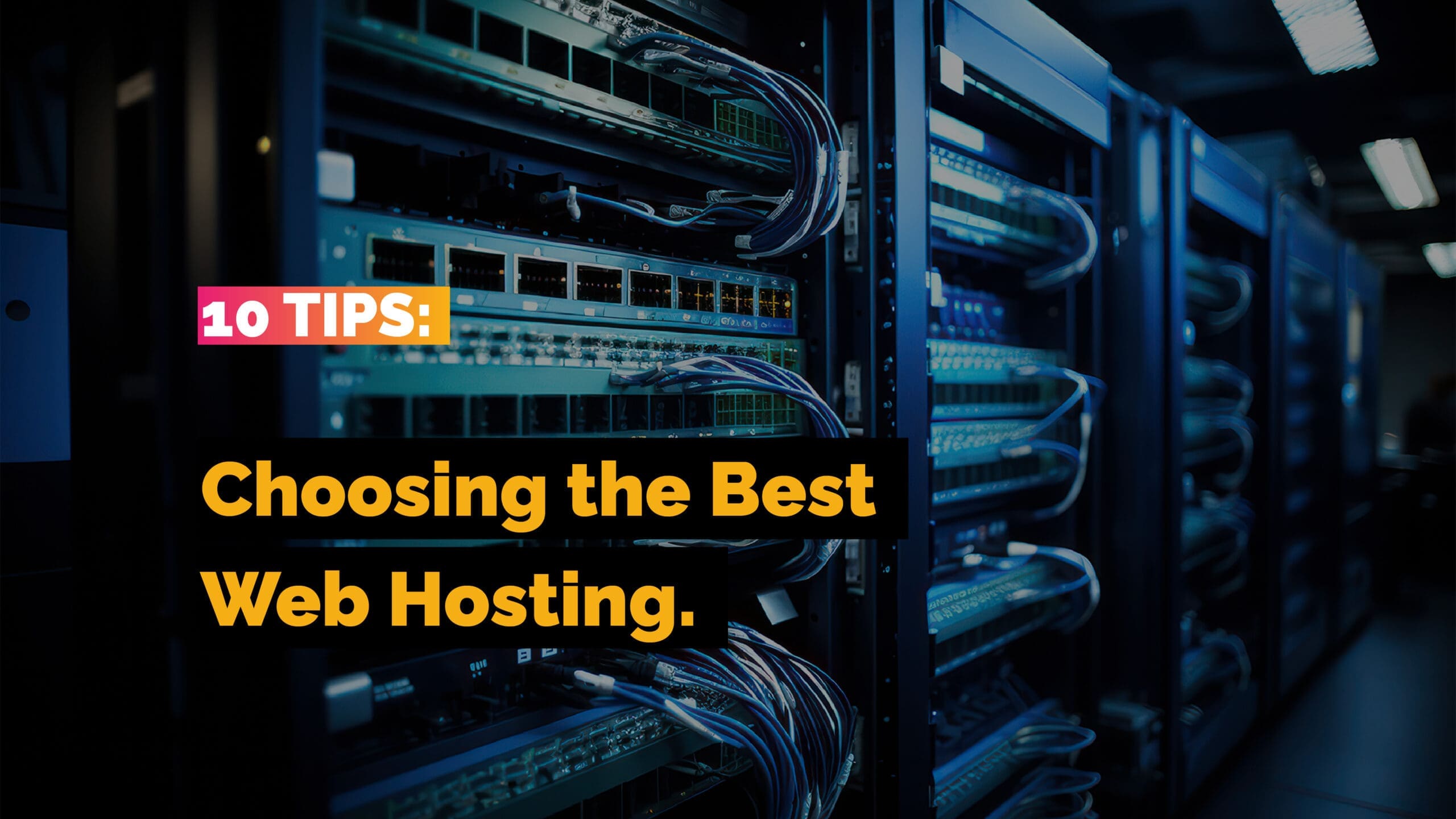With countless hosting options available, it can be overwhelming to make the right choice. This blog will provide ten essential tips to help you select the best web hosting service.
1.
Determine Your Hosting Needs
The first step in choosing the best web hosting is understanding your website’s requirements. Consider factors like the type of website you’re building or migrating, the expected traffic volume, and what technologies you are using. Different hosting options, such as shared, VPS, and dedicated hosting, cater to various needs. Knowing your requirements will help you narrow down your choices.
Shared: For small, low-traffic websites with basic features.
VPS: For larger sites with more traffic and e-commerce sites with lots of dynamic content.
Dedicated: For the biggest websites with serious traffic. These websites need to cope with many users on the site at once.
2.
Assess Reliability and Uptime
Website downtime can harm your online presence and risk losing important leads and sales. Look for a hosting provider with a strong track record of reliability and high uptime guarantees (ideally 99.9% or higher). Review user driven reviews and check for any history of frequent outages before deciding.
3.
Scalability Options
Your website’s traffic may grow over time. Choose a hosting provider with scalability options, allowing you to upgrade or downgrade your hosting plan as needed quickly. This ensures your website can handle increased traffic without disruption.
4.
Server Location
The physical location of your hosting server can impact website speed and performance. Select a hosting provider with server locations that are geographically close to your target audience to reduce latency and improve loading times.
5.
Consider Customer Support
Responsive and knowledgeable customer support is crucial when issues arise. Look for a hosting provider that offers customer support through real people, and make sure to read reviews and testimonials to gauge their support quality.
6.
Security Measures
Website security is paramount. Ensure your hosting provider offers robust security features, including firewalls, SSL certificates, and regular backups. Ensure the hosting runs on the latest technology to prevent any security issues. Additionally, inquire about their security protocols and data protection measures.
7.
Managed Vs. Unmanaged
Managed and unmanaged hosting represent two approaches to web hosting when dealing with VPS and Dedicated Web Hosting services.
With managed hosting, the hosting provider takes care of the technical aspects of server management, including updates, security, backups, and optimisation, allowing website owners to focus on content and business development.
It offers convenience and peace of mind but often costs more. On the other hand, unmanaged hosting provides users with more control over the server’s configuration and maintenance, making it suitable for experienced individuals or organisations with in-house technical expertise.
8.
Reliable and Easy-to-use Backups
Reliable and easy-to-use backups are essential and can be overlooked. Everyone knows backups are necessary, but not all backup systems are the same. Ensuring that your web hosting backups are automated and easy to create and restore is vital.
These backups are a safety net, providing a secure and accessible copy of your website’s data and configurations. In the event of unforeseen disasters, such as server crashes, data corruption, or cyberattacks, having reliable backups ensures that your website can be swiftly restored to its previous state, minimising downtime and potential data loss.
9.
CDN (Content Delivery Networks)
Additional features, such as a Content Delivery Network (CDN), offer a significant benefit by improving the performance and reliability of a website. By distributing website content, such as images, videos, scripts, and other resources, across a network of geographically dispersed servers, a CDN reduces latency and minimises the distance between the user and the server, resulting in faster page load times and smoother user experiences.
CDNs enhance website security by mitigating DDoS attacks, providing DDoS protection, and optimising content delivery for various devices and screen sizes.
A CDN helps websites deliver content faster, more efficiently, and securely, which leads to improved user satisfaction, lower bounce rates, and potentially higher search engine rankings.
10.
Pricing
Compare the pricing plans of different hosting providers, but don’t just focus on the initial cost. Many hosting companies offer attractive introductory rates, but their renewal prices can be significantly higher. Be sure to understand the long-term costs before committing and determine the full range of what you will get, including customer service. And remember, the cheapest option isn’t likely to be the best.
Conclusion
Choosing the best web hosting service is a key decision that can profoundly impact your online presence and business success. Remember to align your hosting choice with your website’s specific needs, prioritise reliability and uptime, consider scalability for future growth, and pay attention to server location and customer support. Security measures and the choice between managed and unmanaged hosting are crucial in your decision-making process.
Embracing modern technologies like Content Delivery Networks (CDNs) can revolutionise your website’s performance, security, and user experience. The efficient distribution of content across a global network of servers ensures faster load times, better protection against DDoS attacks, and improved compatibility with various devices.
Lastly, consider pricing structures and long-term costs when selecting your hosting provider. While budget considerations are important, the cheapest option may not provide the comprehensive features and support necessary for your online success. In the ever-evolving digital landscape, investing in the correct web hosting service can be the cornerstone of your online presence, allowing your website to thrive and flourish in the competitive online world.
For more information on how VOiD can help your hosting needs, please head over to our Hosting Service Delivery page for all you need to know, or even better, drop us a message or give us a call using our Contact Page.






















